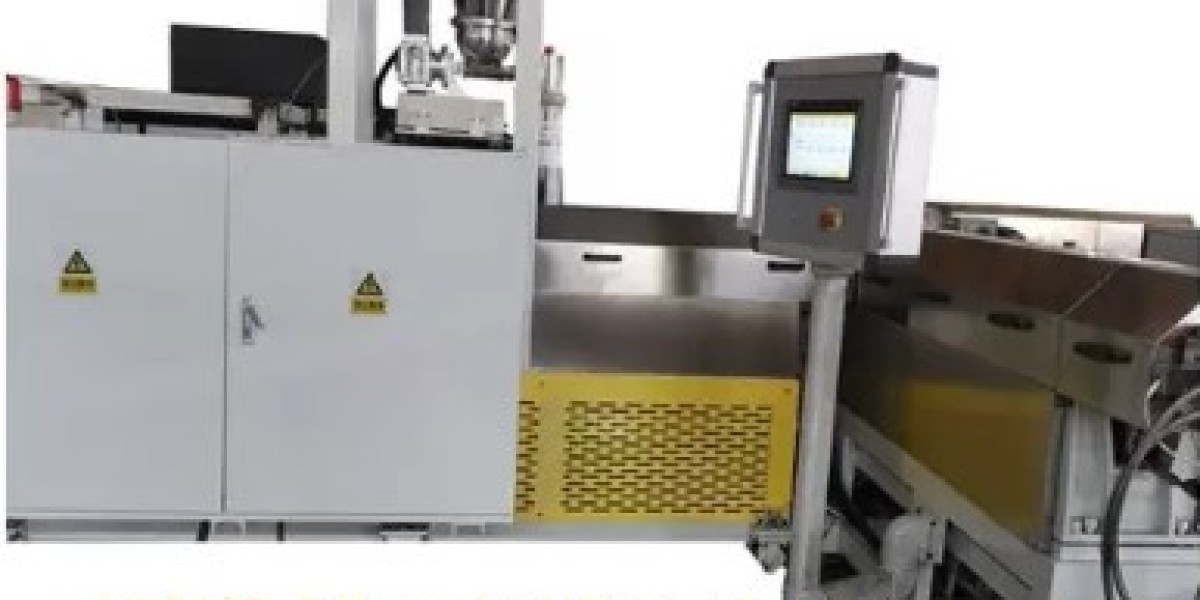Selecting the right foam sheet laboratory machine is crucial for manufacturers aiming to produce high-quality, consistent, and innovative foam products. The right machine empowers businesses to experiment with new materials, achieve desired foam densities, and maintain stringent quality standards. Feininger China, an expert in foam extrusion technology and the industrial production of lightweight polymer materials, is dedicated to pioneering advanced polymer solutions, which include specialized foam sheet laboratory machines that cater to the unique needs of industries like automotive, packaging, and construction. Here’s a comprehensive guide to help manufacturers make an informed choice.
Why a Foam Sheet Laboratory Machine is Essential for Manufacturers
Foam sheet laboratory machines provide a controlled environment to develop and test different foam types and densities, enabling manufacturers to meet specific application requirements and innovate new materials. These machines are critical for industries focused on producing lightweight, durable, and thermally efficient products, as they allow for precise testing and adaptation in the early stages of product development.
Key Considerations When Choosing a Foam Sheet Laboratory Machine
Material CompatibilityDifferent projects require different types of foam materials, from ethylene vinyl acetate (EVA) and polystyrene (PS) to polypropylene (PP) and more. Feininger’s machines are highly versatile, compatible with various polymers, including PBAT, PA, and PET, which are critical for applications in packaging, automotive, and construction industries. Ensure that the laboratory machine is capable of accommodating the types of polymers and additives your specific applications require.
Foaming TechnologyFoam sheet production relies on technologies like physical foaming extrusion and chemical foaming extrusion. Feininger’s foam sheet laboratory machines leverage physical foaming methods, ideal for producing foams with uniform cell structure and improved stability. Physical foaming uses a blowing agent (such as CO₂ or nitrogen) to create the foam structure, resulting in eco-friendlier products without the need for chemical foaming agents, making it suitable for industries focusing on sustainability.
Precision and Control in TestingThe ability to precisely control parameters such as temperature, pressure, and foaming agent concentration is essential. Feininger’s machines offer advanced controls to ensure accurate testing, helping manufacturers fine-tune production parameters before scaling up to full production. This accuracy allows manufacturers to explore a wide range of foam densities, thicknesses, and mechanical properties that are tailored to specific product applications.
Machine Flexibility and CustomizationFeininger’s foam sheet laboratory machines provide flexibility, allowing users to adjust variables and conduct diverse tests on different materials. Customization options are essential as they enable manufacturers to tailor the machine to their unique requirements, whether it’s creating high-density foams for structural applications or low-density foams for cushioning. Look for machines that offer modular setups and variable configurations to facilitate easy adjustments.
Ease of Operation and MaintenanceEfficient operation and minimal maintenance are vital, especially in laboratory settings where quick adjustments may be required. Feininger’s machines incorporate user-friendly interfaces and streamlined maintenance processes to reduce downtime, making them suitable for intensive testing and research environments. Manufacturers should prioritize machines with intuitive controls and robust designs, reducing training time for operators and minimizing maintenance costs.
Data Collection and Analysis CapabilitiesIn a laboratory setting, data collection and analysis are crucial for tracking performance and refining product designs. Feininger’s laboratory machines come with integrated data logging and analysis systems, allowing operators to collect real-time data on parameters like temperature stability, foam density, and material expansion. This data-driven approach enables manufacturers to make evidence-based decisions and rapidly iterate on foam designs.
Advantages of Feininger’s Foam Sheet Laboratory Machines
Feininger is a leader in foam extrusion technology, known for their advanced polymer solutions and commitment to lightweight materials. Here are some unique benefits of their machines:
Compatibility with High-Performance Polymers
Feininger’s machines are specifically designed to handle polymers such as PBAT, PA, and PET, which are in demand across various industries for their environmental benefits, durability, and strength.Enhanced Flexibility for Experimentation
Feininger’s machines are built to support a wide range of foam densities and textures, offering versatility for research institutions and industry labs to experiment with new materials, compositions, and foaming techniques. This flexibility is ideal for manufacturers pushing the envelope in lightweight polymer engineering.Environmental Commitment
With a focus on physical foaming techniques, Feininger’s machines support sustainable production practices by avoiding chemical foaming agents. This aligns with industry trends toward eco-friendly manufacturing and allows manufacturers to produce foams that are safe, recyclable, and less harmful to the environment.
Applications of Foam Sheet Laboratory Machines Across Industries
Automotive IndustryLightweight, high-strength foam materials are essential in the automotive sector for reducing vehicle weight and improving fuel efficiency. Feininger’s machines allow automotive manufacturers to develop and test foams that meet specific safety and durability requirements while maintaining lightweight properties.
Packaging and CushioningFoams are widely used in packaging to protect products during transit. With Feininger’s laboratory machines, manufacturers can develop custom foam solutions that offer optimal impact resistance, are lightweight, and provide an eco-friendly option for sustainable packaging solutions.
Construction and InsulationThe construction industry increasingly relies on high-performance foams for insulation and structural applications. Feininger’s foam sheet laboratory machines enable construction material manufacturers to test foams for thermal insulation, water resistance, and other properties necessary for energy-efficient buildings.
Conclusion: Investing in the Right Foam Sheet Laboratory Machine
Choosing the right foam sheet laboratory machine is a strategic investment that can drive innovation, improve product quality, and ensure manufacturing efficiency. Feininger’s commitment to providing high-quality, versatile machines makes them a reliable partner for manufacturers across industries. With features like compatibility with diverse polymers, advanced data analysis, and eco-friendly foaming techniques, Feininger’s foam sheet laboratory machines are tailored to support modern industry demands.
For manufacturers looking to push the boundaries of foam material innovation, Feininger’s foam sheet laboratory machines offer the essential tools to stay competitive in a fast-evolving market, balancing quality, efficiency, and sustainability.







